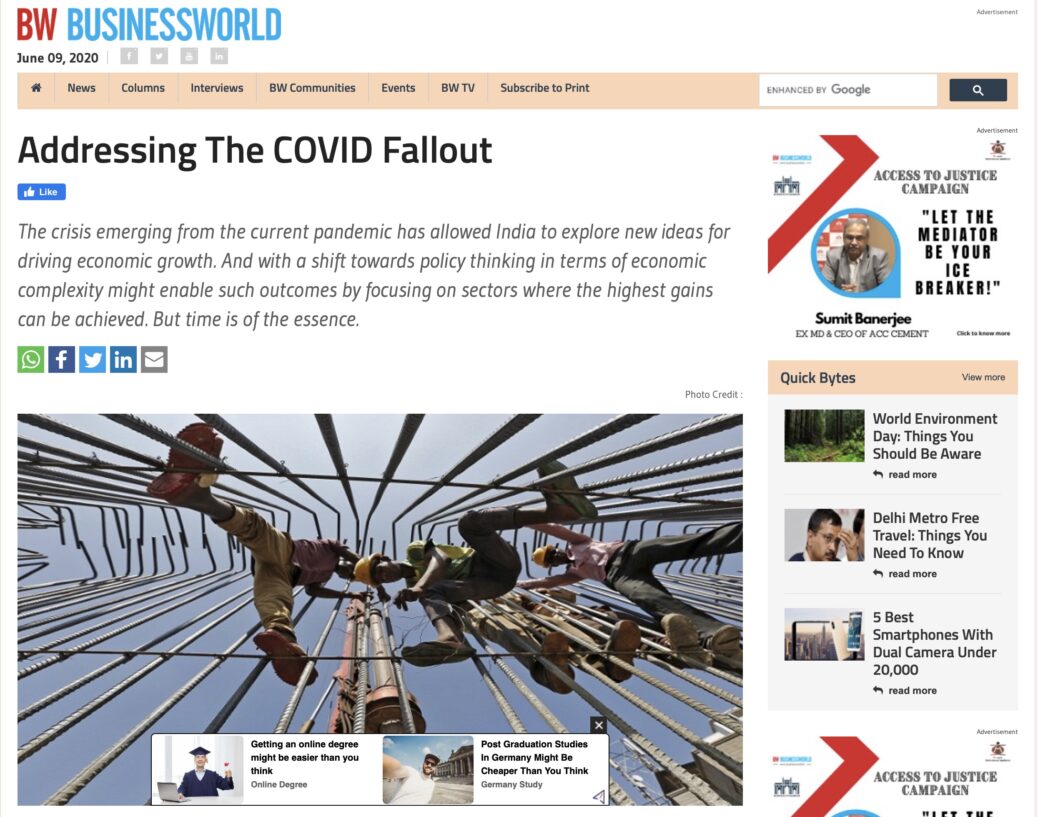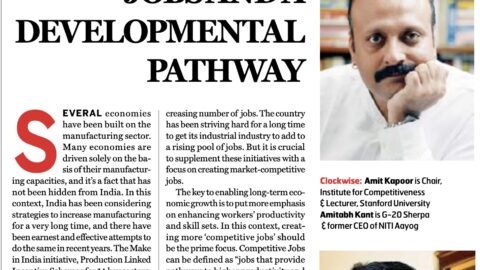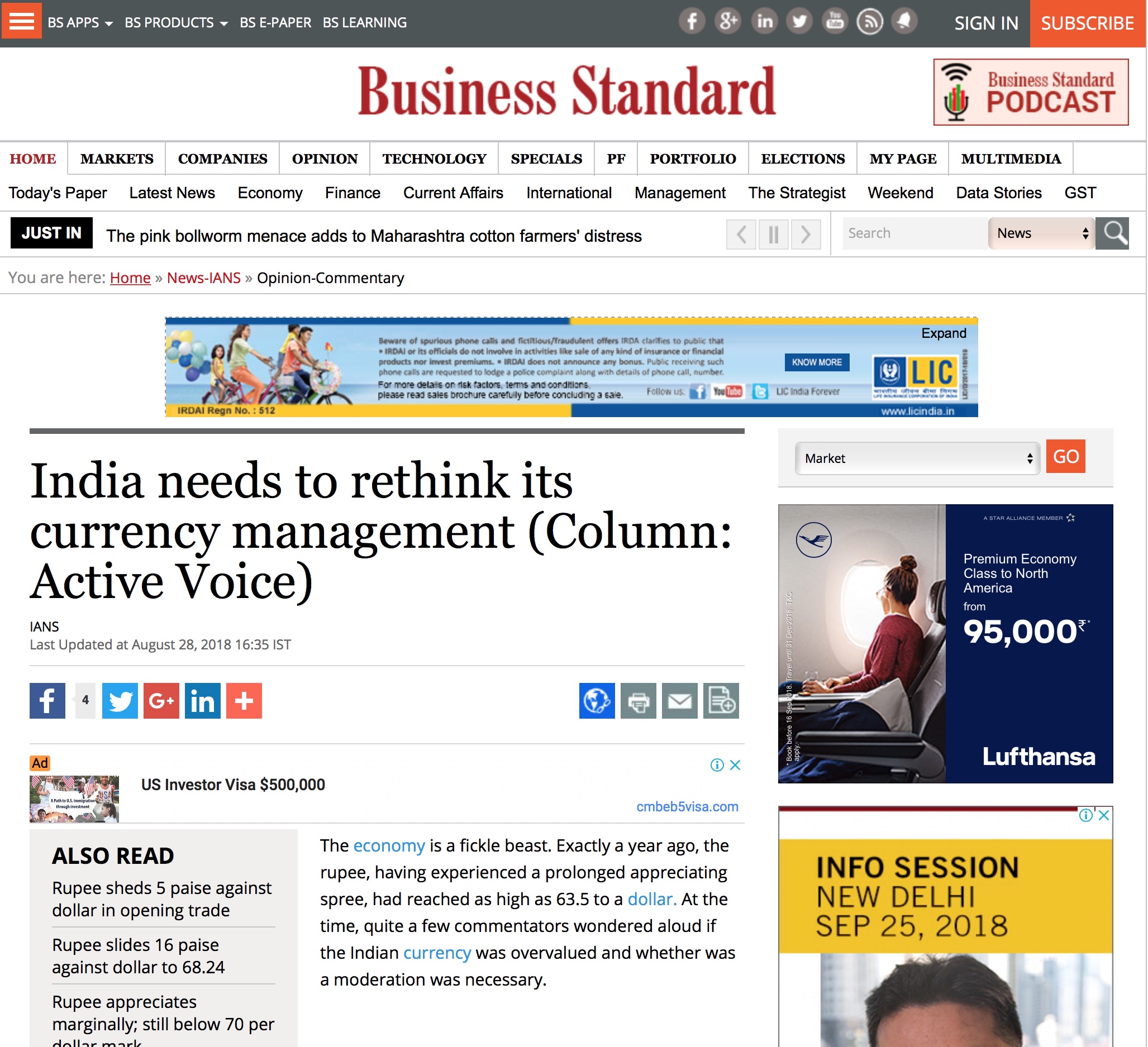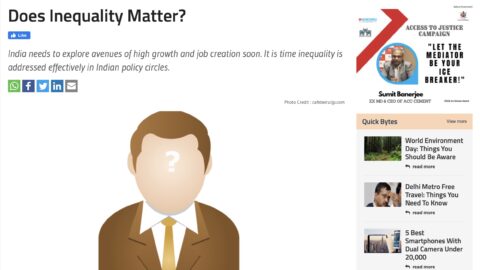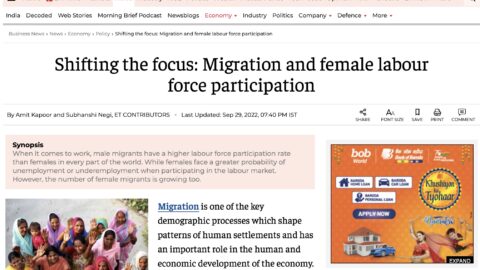Addressing the COVID fallout
Over the last few decades, the world has made tremendous progress in lifting people out of poverty. India was a major contributor to this historic trend – second only to China. But a recent UN report highlights that the spread of coronavirus around the world will result in a major reversal of these gains. Specifically, by year-end, the estimated number of children living in poor households will rise by 86 million. Low and middle-income countries are particularly susceptible to this fallout. India, which lacks strong social protection nets, needs to be wary of this eventuality and explore unique avenues of economic growth.
First, it is important first to understand the causes of economic growth. There have been numerous attempts to understand economic growth from David Ricardo’s theory of comparative advantage to the Solow-Swan model to Paul Romer’s endogenous growth model. All these theories broadly indicate that technological change is the most important factor that determines the rate of economic growth. A common measure of technological progress is the growth in total factor productivity (TFP), which is the relative efficiency with which an economy produces goods and services, with a given quantity of labour and capital. TFP is an indirect measure as it attributes all output growth to technology that cannot be explained through growth in capital and labour supply.
However, employing TFP, as an indirect measure, has its challenges. TFP does not capture all the facets of technology; therefore, it may not be the best indicator for measuring technological progress. So, the question now appears that is there a better empirical method to assess the extent of technological progress in society? The answer lies perhaps in the idea of economic complexity – an idea forwarded by Ricardo Haussman and Cesar Hidalgo – defined as a measure for a society’s capability endowment.
For understanding economic complexity, first, we should understand the fundamental nature of an economy and its components. The nature of products produced within an economy is a result of the collection of knowledge held within itself. For instance, an economy that produces toothpaste is expected to have knowledge about the chemicals that kill the germs that cause, cavities, gum diseases and bad breath. However, the amount of knowledge embedded within society does not mainly depend on the summation of knowledge held by every individual. Instead, it depends more on the diversity of knowledge held by individuals and their ability to combine this knowledge.
Therefore, for a modern society that is more complex than the hunter-gatherers, the cumulative knowledge will far exceed that of individuals. For instance, one individual cannot have the knowledge of building computers that he or she uses, pilot the aeroplane that they board for commute and farm the tomatoes that they use. Only the collective knowledge of society enables an individual to perform those activities within the span of a day. Economic complexity, therefore, is a proxy for the productive knowledge embedded within society.
The disparities in the levels of prosperity across nations depend on the amount of knowledge that society holds.Countries whose economic complexity is higher than what is expected for their income level, tend to grow faster than the ones that are “too rich” for their current level of complexity. Therefore, economic complexity is not just a symptom or an expression of prosperity; it is a driver. Countries need to improve the complexity of their economies to drive economic growth.
The crisis emerging from the current pandemic has allowed India to explore new ideas for driving economic growth. And with a shift towards policy thinking in terms of economic complexity might enable such outcomes by focusing on sectors where the highest gains can be achieved. But time is of the essence.
The article was published with Business World on June 6, 2020.

